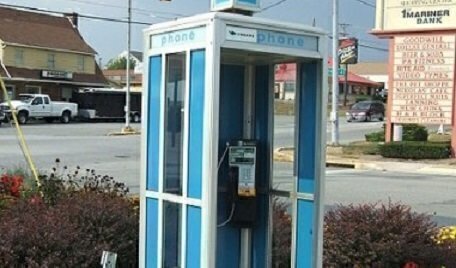Classroom Resources By Topic
Fourth Amendment: Search and Seizure

Introduction
The Fourth Amendment protects us from unreasonable search and seizures of our person, our house, our papers, and our effects. In many cases, this amendment governs our interactions with the police. Before the government—including police officers—can search your home or seize your property, it needs a good reason. This is the big idea behind the Fourth Amendment’s warrant requirement. The government needs particularized suspicion—a reason that’s specific to each suspect—before it can get a warrant. Broadly speaking, our Constitution says that the police should only be able to invade a person’s rights to privacy, property, or liberty if they have a specific reason to think that the suspect has done something wrong.
Can the government track you 24 hours a day, seven days a week, for an entire month, using your cell phone data and location information?
Why did the Framers put the Fourth Amendment in the Bill of Rights? What was the Founding generation’s vision for the Fourth Amendment and its protection against unreasonable searches and seizures?
When does the Fourth Amendment allow the government to search you or seize your property? When is a government’s search of seizure “reasonable”?
How has the Supreme Court interpreted the Fourth Amendment over time? And how has it dealt with the challenge of shaping the Fourth Amendment’s meaning in light of new technologies, especially as it applies to public schools?
Constitution 101
Module 11: The Fourth Amendment
Jeffrey Rosen and Ali Velshi Discuss SCOTUS Case on Policing, Privacy, and Fourth Amendment Rights
When can police in "hot pursuit" enter a suspect’s property without a warrant?
The Fourth Amendment: Past and Present
Leading Fourth Amendment scholars trace the evolution of privacy rights from the Founding to today in conversation with host Jeffrey Rosen.
Katz v. United States: The Fourth Amendment adapts to new technology
On December 18, 1967, the Supreme Court ruled in Katz v. United States, expanding the Fourth Amendment protection against “unreasonable searches and seizures” to cover electronic wiretaps.

New Jersey v. T.L.O.: The Fourth Amendment in public schools
On January 15, 1985, the U.S. Supreme Court ruled in New Jersey v. T.L.O., holding that public school administrators can search a student’s belongings if they have a reasonable suspicion of criminal activity.
The Fourth Amendment in the Digital Age
In this excerpt from our new Digital Privacy initiative, Jim Harper from the Competitive Enterprise Institute critiques current Fourth Amendment doctrine and calls on courts to adopt a new approach that hews closely to the Fourth Amendment’s text.








